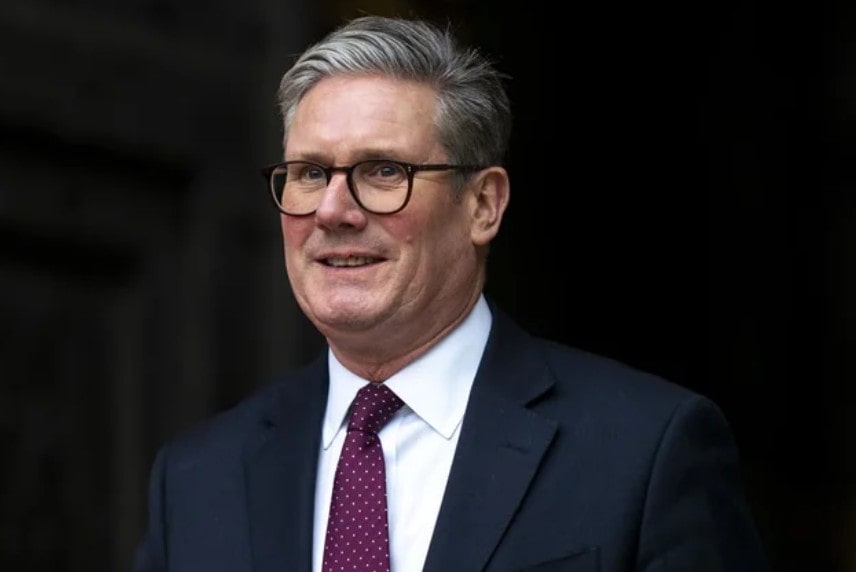Keir Starmer Caught Between Principles and Populism on UK Immigration
Prime Minister Keir Starmer faces an increasingly precarious balancing act over Britain’s immigration debate, as political rivals seize on public concerns and push the conversation into sharper, more volatile territory.
Nigel Farage, leader of Reform UK, is enjoying a surge in popularity, tapping into fears about crime and rising migrant numbers. Both Labour and the Conservatives are struggling to respond, they must acknowledge public worries without fuelling prejudice.
The statistics are stark. One in eight prisoners in England and Wales is a foreign national. Sexual and violent offences committed by foreign inmates rose by 10% and 9% respectively last year.
Labour councils still face criticism over historic failures to confront grooming gangs, while 14 years of Conservative government saw migration pledges repeatedly broken, a record that contributed to their electoral defeat.
Justice Secretary Shabana Mahmood says she will speed up the removal of foreign criminals. A new law next month will allow deportation after 30% of a sentence, rather than halfway through.
But Mahmood wants more urgency, calling for the “immediate deportation of convicted foreign criminals”, rapists, drug traffickers and burglars included.
Meanwhile, the number of people crossing the Channel illegally has spiked, about 25,000 in the first half of 2025, a 50% rise on last year. The images of small boats have hit public sentiment nationwide, from Sunderland to Southend, regardless of where migrants actually land.
Misperceptions muddy the debate. A recent YouGov poll found 47% of Britons believe illegal migrants outnumber legal arrivals — a view held by 72% of those demanding mass removals. In reality, most immigration is lawful.
But ministers have at times undermined their own credibility. Treasury minister Darren Jones told a BBC audience that most small-boat migrants were “children, babies and women”, yet official data shows 81% were men.
Starmer, standing alongside French President Emmanuel Macron last week, vowed that “social democracy has the answers” to Farage’s “performative populism”.
He unveiled a limited returns deal with France, “No gimmicks, just results… they will be sent back”, though only around 50 migrants a week are expected to be removed.
Starmer’s own rhetoric has sometimes mirrored his populist rival’s. Earlier this year, he apologised after warning Britain risked becoming “an island of strangers”. Critics inside Labour saw it as dog-whistling.
Conservative shadow justice secretary Robert Jenrick has taken a harder line, citing figures that “Afghans and Eritreans are more than 20 times more likely to be convicted of sexual offences than British citizens”.
He claimed that in London, “40%… of all… sexual crimes were committed by foreign nationals”. Statisticians have challenged these interpretations, but Jenrick believes he can outflank Reform by matching its outrage.
Farage, meanwhile, continues to set the pace. He accused Warwickshire Police of a “cover-up” after they withheld the nationality of two Afghans charged with the rape and kidnap of a 12-year-old girl. Starmer and Home Secretary Yvette Cooper have since urged greater transparency from police.
The government has pledged to “smash” trafficking gangs, allocating an extra £100 million for intelligence work. But scepticism runs deep about whether such moves will dent a lucrative and adaptable criminal trade.
Alternative strategies exist. Starmer could push to renegotiate international migration agreements drafted in a pre-globalised world.
He could also look to European models, such as Denmark’s Social Democrats, who cut migration by limiting asylum to temporary status, curbing family reunification, and reducing benefits for new arrivals.
For now, Starmer’s approach remains caught between symbolism and substance. Less talk. More action. And quickly.






